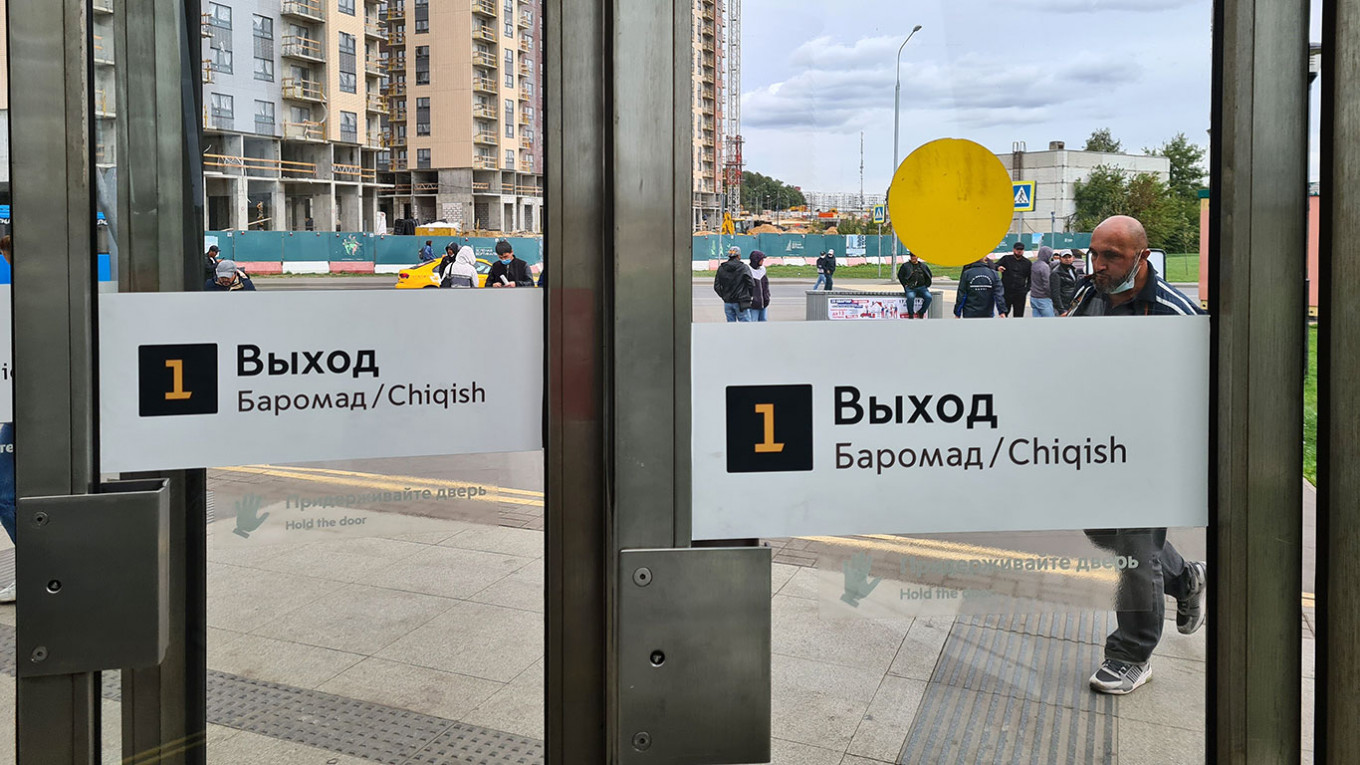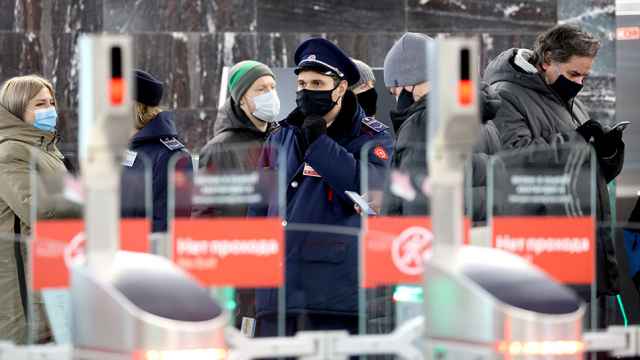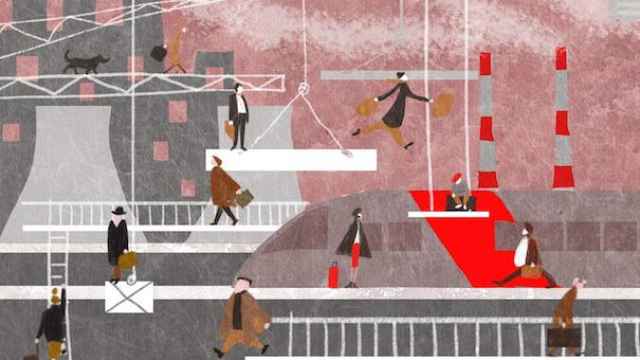The Moscow metro has added Uzbek- and Tajik-language signage at two stations leading to migrant processing centers outside the Russian capital, local media reported Tuesday.
The signs at the Prokshino and Lesoparkovaya stations on the southern outskirts of Moscow are designed to help migrants from the two ex-Soviet Central Asian republics board buses toward the Sakharovo migrant center.
“Our task is to make the metro clear and comfortable for different passengers,” Moscow’s transportation department told the Podyom news website.
“We have duplicated the navigation of two stations in Farsi (the language spoken by the majority of the peoples of Tajikistan) and Uzbek for the convenience of visitors to the migration center, so that they use urban transport more,” it said.
The United Nations’ International Organization for Migration (IOM) welcomed the appearance of Uzbek and Tajik-language signs as a positive approach that follows in the footsteps of other world capitals.
“You can see things like that for migrants in many countries of the world. This is done so foreign citizens can navigate in public places,” Abdusattor Esoyev, the IOM Moscow bureau director, told the state-run RIA Novosti news agency.
Several million mostly labor migrants from Central Asian states are estimated to live and work in Russia. The coronavirus pandemic led to a mass outflux of migrants last year, leading the Kremlin to seek ways to lure them back in and prop up the country's construction and agriculture industries.
The Sakharovo migrant center 80 kilometers south of Moscow became a mass detention holding center during protests in support of jailed Kremlin critic Alexei Navalny after the city's jails filled up early this year.
Footage from inside the Sakharovo detention center showed detainees in overcrowded cells, lying without mattresses on metal beds and a single, open hole in the floor for a toilet.
A Message from The Moscow Times:
Dear readers,
We are facing unprecedented challenges. Russia's Prosecutor General's Office has designated The Moscow Times as an "undesirable" organization, criminalizing our work and putting our staff at risk of prosecution. This follows our earlier unjust labeling as a "foreign agent."
These actions are direct attempts to silence independent journalism in Russia. The authorities claim our work "discredits the decisions of the Russian leadership." We see things differently: we strive to provide accurate, unbiased reporting on Russia.
We, the journalists of The Moscow Times, refuse to be silenced. But to continue our work, we need your help.
Your support, no matter how small, makes a world of difference. If you can, please support us monthly starting from just $2. It's quick to set up, and every contribution makes a significant impact.
By supporting The Moscow Times, you're defending open, independent journalism in the face of repression. Thank you for standing with us.
Remind me later.






